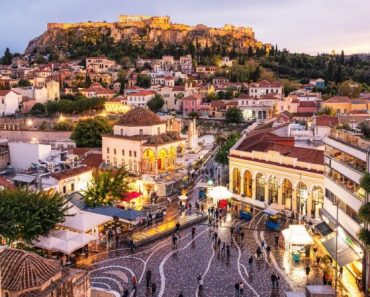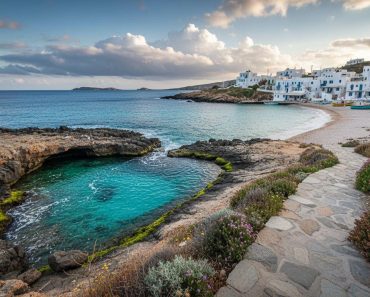Thessaloniki is entering a new phase of urban and tourism renewal with the 255-million-euro redevelopment of the historic FIX industrial complex, one of the city’s most iconic landmarks.
The project, now progressing at speed, aims not only to restore a long-abandoned site but to transform the wider western entrance into a modern hub of culture, hospitality, business activity and public space.
Developed by Greek real estate developer DIMAND with design by Foster + Partners, the new FIX complex will function as a “mixed-use ecosystem” that integrates housing, offices, hotels, culture, retail, leisure and green space.
The project is expected to generate around 2,000 jobs during construction and an estimated 2,500–3,000 permanent jobs once operational, providing a major boost to Thessaloniki’s local economy and investment climate.
A new anchor for tourism and urban life
For the tourism sector, FIX represents one of Thessaloniki’s most significant investments in years. The city has been experiencing rising demand for city-break, gastronomy and conference tourism, and the new complex is expected to strengthen these segments by offering infrastructure suitable for large corporate, cultural and lifestyle events.
Hospitality is a central component of the redevelopment. The complex will include a seven-storey hotel with 153 rooms on 11,250 square meters, offering views toward the sea and the preserved industrial buildings. A second boutique hotel with 38 rooms will be developed within the first cluster of buildings. The residential component includes 96 apartments across nine floors, along with parking and dedicated lobby areas.
DIMAND CEO Dimitris Andriopoulos described the main hotel as “emblematic and symbolic” for Thessaloniki, adding that official announcements about the operating company will follow in January.
He highlighted that the scale and ambition of the FIX redevelopment draw inspiration from major international urban-renewal successes, including King’s Cross in London, developments in Málaga and Bilbao, and a 30,000-square-meter tech district developed in Lisbon through a municipal-industry partnership.
“What will take place in western Thessaloniki over the next three years will be something truly unique,” he said.
Culture and public space at the core
One of the project’s defining features is its cultural dimension. In the second building cluster, which belongs to the Culture Ministry, the MOMus–Museum of Modern Art will be housed along with the renowned Kostaki Collection – the largest cultural acquisition ever made by the Greek state, now valued at 350 million euros. The complex will also include a library with more than 40,000 rare books and serve as the new home of the Thessaloniki State Symphony Orchestra.
Large green areas and public open spaces are integral to the project, offering residents and visitors a renewed sense of urban quality. The redesign of the western entrance – long considered one of the city’s most neglected areas – is expected to improve the everyday experience of both locals and tourists while strengthening the city’s overall identity as a modern European destination.
A landmark with a long history
The FIX site has deep roots in Thessaloniki’s industrial heritage. Established in 1882 and later expanded by major commercial families, it evolved into the iconic “Olympus–Naousa” brewery complex before being absorbed by the Athens-based FIX company in 1926. After its closure and decades of abandonment, the complex was declared a protected historic monument in 1994.
A new point of reference for the city
With its combination of hospitality, culture, housing, business space and public amenities, the new FIX redevelopment is widely seen as a transformative project for Thessaloniki. By reconnecting the area’s industrial past with contemporary urban needs, it is set to become a major point of reference for locals and visitors alike – and a significant driver of tourism and economic activity in the wider region.
Follow GTP Headlines on Google News to keep up to date with all the latest on tourism and travel in Greece.













